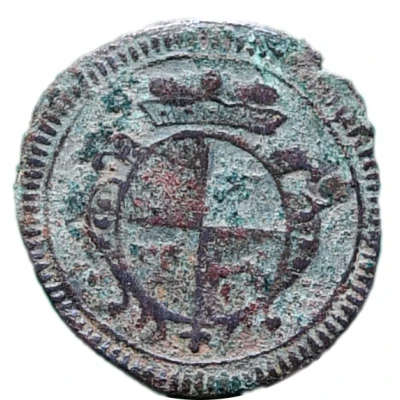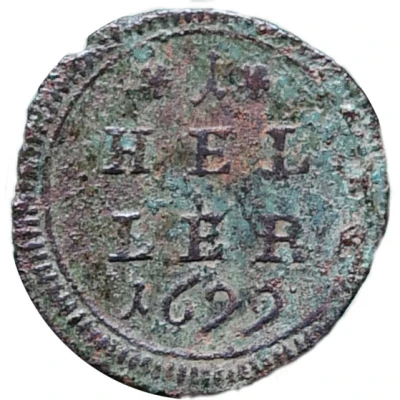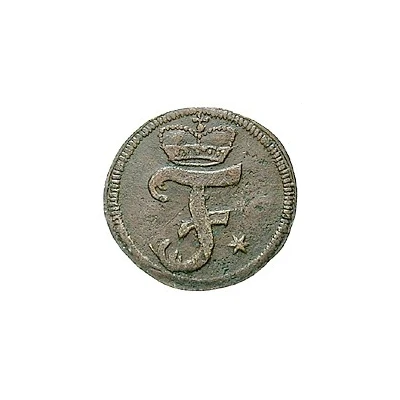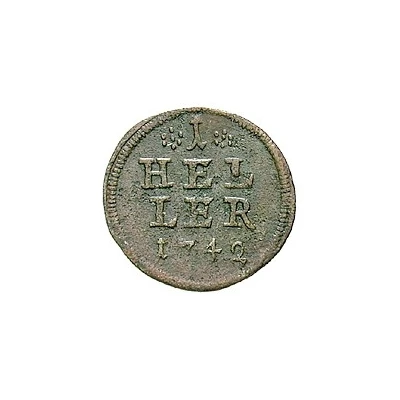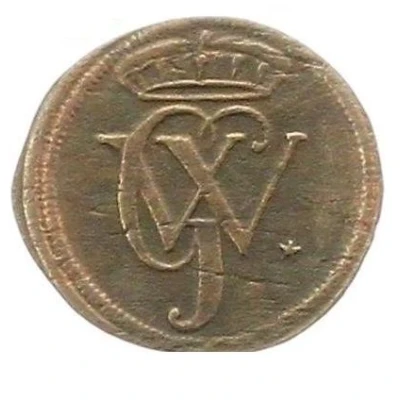
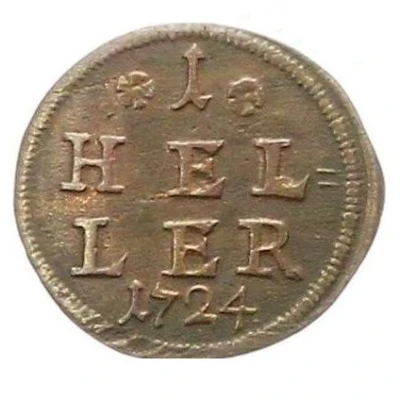

© Walter_Scott
Heller, George William
| Copper | 0.55 g | 15.2 mm |
| Issuer | Margraviate of Brandenburg-Bayreuth (German States) |
|---|---|
| Margrave | George William (Georg Wilhelm) (1712-1726) |
| Type | Standard circulation coin |
| Years | 1722-1724 |
| Value | 1 Heller (1⁄360) |
| Currency | Thaler |
| Composition | Copper |
| Weight | 0.55 g |
| Diameter | 15.2 mm |
| Thickness | 0.45 mm |
| Shape | Round (irregular) |
| Orientation | Medal alignment ↑↑ |
| Demonetized | Yes |
| Updated | 2024-10-04 |
| Numista | N#340398 |
|---|---|
| Rarity index | 100% |
Reverse
Value inscription in three lines, date below.
Script: Latin
Lettering:
✿1✿
HEL=
LER
1724
Edge
Plain
Comment
Variants:Interesting fact
One interesting fact about the Heller coin from the Margraviate of Brandenburg-Bayreuth is that it was minted during a time of great economic and political change in Europe. The coin was issued during the reign of George William, who was the Margrave of Brandenburg-Bayreuth from 1722 to 1724. During this period, the Holy Roman Empire was dissolved, and many German states, including Brandenburg-Bayreuth, began to assert their independence and issue their own coins. The Heller coin was one of the first coins minted by Brandenburg-Bayreuth and was used as a standard circulation coin throughout the region. Despite its small size and relatively low value, the coin is now a rare and highly sought-after collector's item, providing a unique glimpse into the economic and political history of 18th-century Europe.
